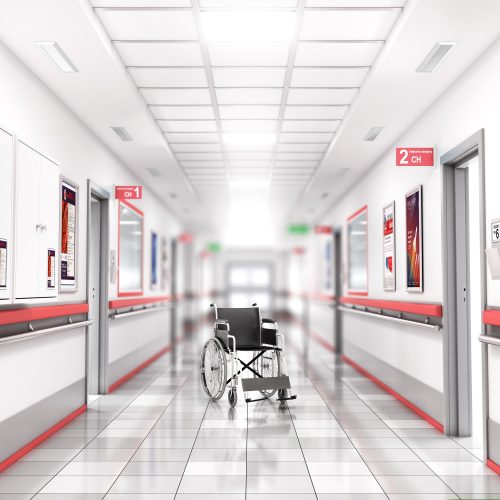2020 Outlook for New Jersey’s Healthcare Sector: Continued Hospital Consolidation, Pressure on Physicians
Roseland, NJ (December 20, 2019) – More physicians are spending less time with patients and contending with reduced reimbursement rates than just four years ago. Data privacy, and the prescribing of opioids continue to be on the radar, while technology is becoming an increasingly important tool within physician practices.
According to the newly-released Brach Eichler 2019 New Jersey Health Care Monitor, the eighth annual survey of New Jersey physicians:
- 63% said they were dealing with an increased administrative burden as a result of regulatory or compliance issues (versus 39% in 2015).
- Nearly 56% of respondents said the changing healthcare environment has led to reduced reimbursement (versus 27% in 2015).
- Nearly half said they were spending less time with their patients (versus 16% in 2015).
- 37% spent more on technology in the last year (versus just 9% in 2015).
- A little over half of physicians surveyed say they are prescribing fewer opioids to their patients compared with 43% in 2018.
In spite of these demands, little more than half of all physicians said their practice structure has not changed in the last year (versus 49% in 2018 and 61% in 2015).
“In 2019, we saw significant transactions continue to shape New Jersey’s healthcare marketplace such as Summit Medical Group’s merger with New York City-based urgent care system CityMD, as well as continued hospital consolidations,” said Brach Eichler Managing Member and Healthcare Law Practice Chair John D. Fanburg. “While many physician practice groups already completed mergers and acquisitions in recent years, we still are likely to see the ripple effects of this year’s mega deals on the physician community for some time to come.”
In fact, 16% of those physicians surveyed said that they did integrate their practice with another healthcare organization such as another single or multispecialty practice or hospital within the last year (versus 32% in 2018 and 37% in 2015), in a continuation of the trend, albeit at a lower rate. Of those physicians who are considering merging or otherwise modifying their practice, the reasons remained mostly consistent with the 2018 survey, with the desire to reduce expenses and increase cash flow being the most important reasons, followed by the desire to reduce the administrative burden, boost market share, and remain competitive.
According to the 2019 study, data privacy continues to be a focus for physicians in terms of how they run their practice in the face of highly-publicized technology breaches and cyberattacks. More than 4 in 10 physicians said they are investing in technology, while 40% also said they are conducting more staff training, and 20% are creating a new policy and procedures manual in an effort to protect their patients’ data and privacy.
Opioids continue to be an important topic. Healthcare Law Member Joseph Gorrell noted, “The nation’s opioid crisis has captured the attention of New Jersey’s physicians, as well, with more than half (52%) of the respondents prescribing them less often and suggesting alternatives, and 29% taking greater care to document patient and prescription data, according to this year’s survey.”
Among the survey’s other key findings:
- 36% of respondents said they haven’t felt any impact from the now 18-month-old out-of-network law; 30% weren’t sure yet, and 14% said their reimbursement had been reduced.
- While the media have talked a great deal about new ways to deliver medical care, the vast majority (72%) said they have not considered or are not already delivering medical care in new ways. However, 19% have considered telemedicine, 12% have considered concierge medicine, and 4% have considered home-based healthcare.
- All of the business and regulatory demands on physicians continue to impact their outlook for their practice. While more than 62% of NJ physicians have a neutral, favorable, or very favorable outlook for their practice, nearly 38% had an unfavorable or very unfavorable view.
- Reduced reimbursement is physicians’ biggest concern going into 2020, followed by increased administrative burden and keeping up with regulatory and compliance demands. Many still also feel pressure to give up their independent practices and face challenges keeping their client base intact.
2020: What’s In Store for the Practice of Medicine in New Jersey?
While this year’s study didn’t reveal dramatic fluctuations in the trends from the 2018 study, Fanburg noted that it often takes time before “we meaningfully start to see the longer-term effects of some of these changes, such as M&A activity, New Jersey’s evolving cannabis laws, and the influence of Wall Street and private equity. While the relative consistency among the trends between last year and this year may suggest that there is stability in the marketplace, in fact, New Jersey’s healthcare arena continues to evolve, quite dramatically in some ways, and serves as a barometer for the changing practice of medicine across the country.”
Among the trends that Brach Eichler has highlighted for 2020 are:
- New York- and Philadelphia-based hospitals will continue to penetrate the New Jersey market; for example, Penn Medicine, CHOP, and the Rothman Institute have followed other large hospitals like Memorial Sloan Kettering and New York Presbyterian into the New Jersey healthcare marketplace.
- Physicians will continue to move away from smaller practices to hospital affiliations, a decision driven as much by geography, as well as strategy. Specialists, in particular, will need to look more carefully at their referral sources. As hospitals continue to merge, they will exert greater influence over their referral base, which will have a significant effect on which specialists patients “choose.”
- Wall Street and private equity will continue to help physicians monetize their practices.
- Patient care will increasingly be rendered by physician assistants and advanced practice nurses as physicians face growing pressure to be ever-more efficient with regard to patient “throughput,” something that is especially true within the larger practice groups.
In spite of these changes and challenges, more physicians than not still would recommend that a young person graduating from college go into the medical profession, with 53% saying so in this year’s survey. “This suggests that, despite the growing regulatory and compliance burdens, as well as competitive pressures, physicians still derive enormous satisfaction from the practice of medicine. This fact really says more about the profession here in New Jersey than anything else, much to the benefit of patients,” Fanburg added.
About the Survey
In November 2019, Brach Eichler surveyed 149 physicians, including solo practitioners, members of group practices, and employees of healthcare facilities. To access the full results of the survey, click here.
About Brach Eichler’s Healthcare Law Practice
Leaders in health care representation, the attorneys at Brach Eichler serve individuals and entities from every corner of the healthcare industry. The firm’s knowledge across a wide spectrum of issues, including M&A and other transactions; licensure; white collar criminal; litigation; contract negotiations; business sales, purchases, and other alliances; Medicare and other reimbursement issues; corporate and regulatory compliance, and other matters helps the firm’s clients successfully negotiate today’s complex healthcare environment. The attorneys at Brach Eichler are trusted advisors, working closely with healthcare providers to address the myriad legal and business issues that arise in the delivery of healthcare. The firm is known for innovation, flexibility, and a focus on practical solutions. Noted ranking company Chambers USA acknowledges Brach Eichler as having one of the leading healthcare law practices in New Jersey.
About Brach Eichler LLC
Brach Eichler LLC, is a full-service law firm based in Roseland, NJ. With over 80 attorneys, the firm is focused in the following practice areas: Healthcare Law; Real Estate; Litigation; Trusts and Estates; Business Transactions & Financial Services; Personal Injury; Criminal Defense and Government Investigations; Labor and Employment; Environmental and Land Use; Family Law; Patent, Intellectual Property & Information Technology; Real Estate Tax Appeals; Tax; and Cannabis Law. Brach Eichler attorneys have been recognized by clients and peers alike in The Best Lawyers in America©, Chambers USA, and New Jersey Super Lawyers.
###











